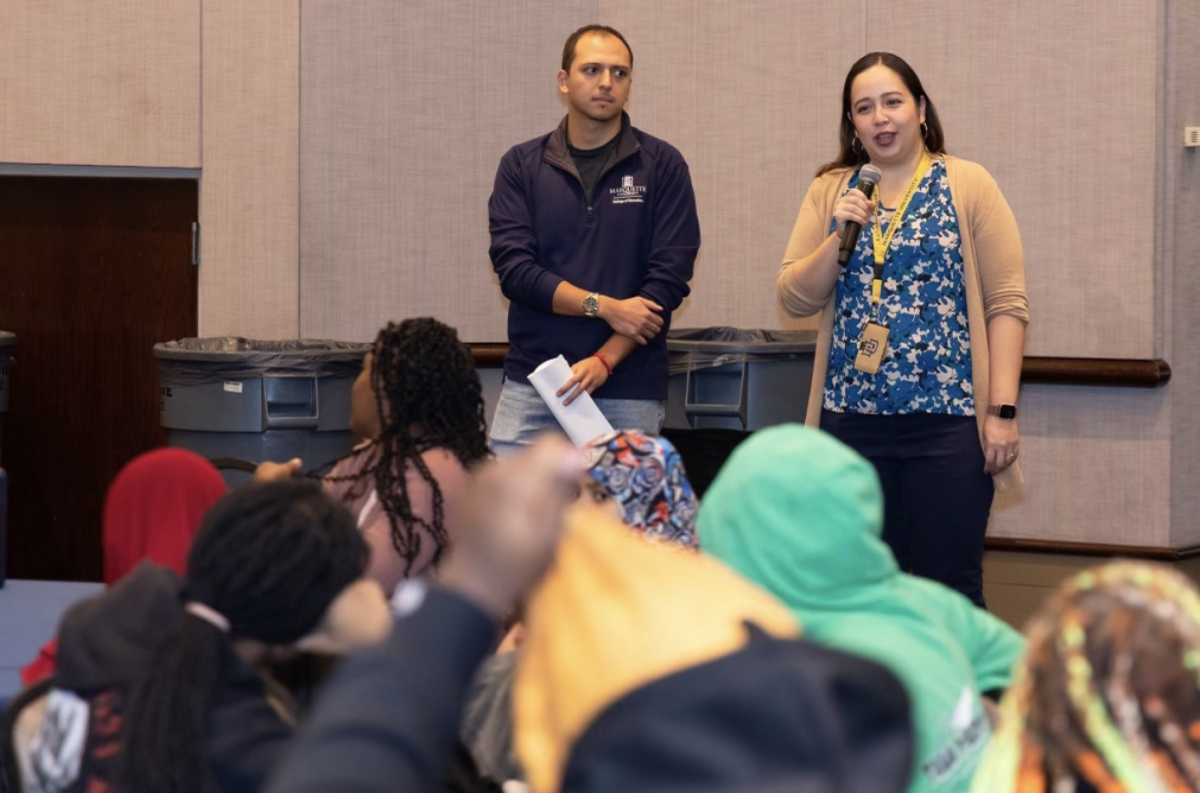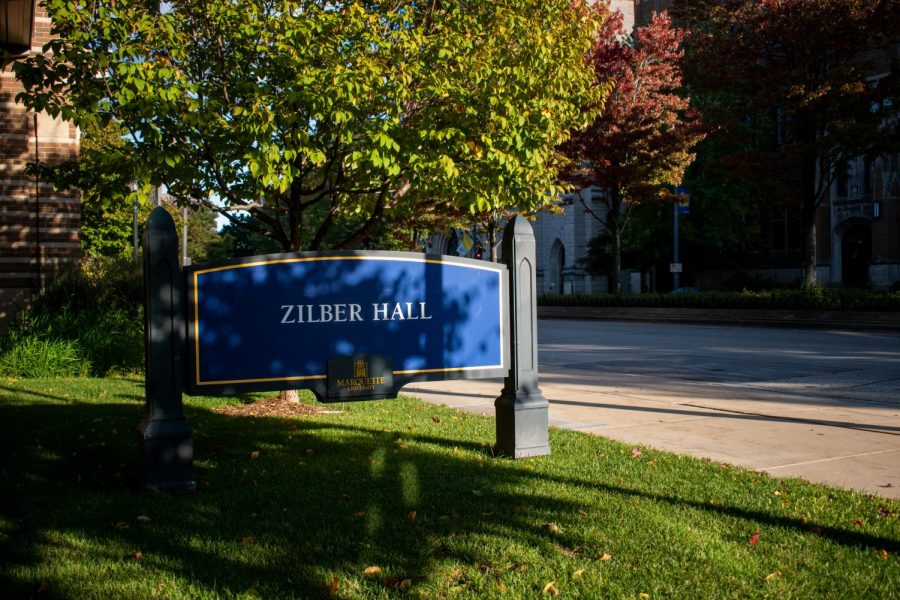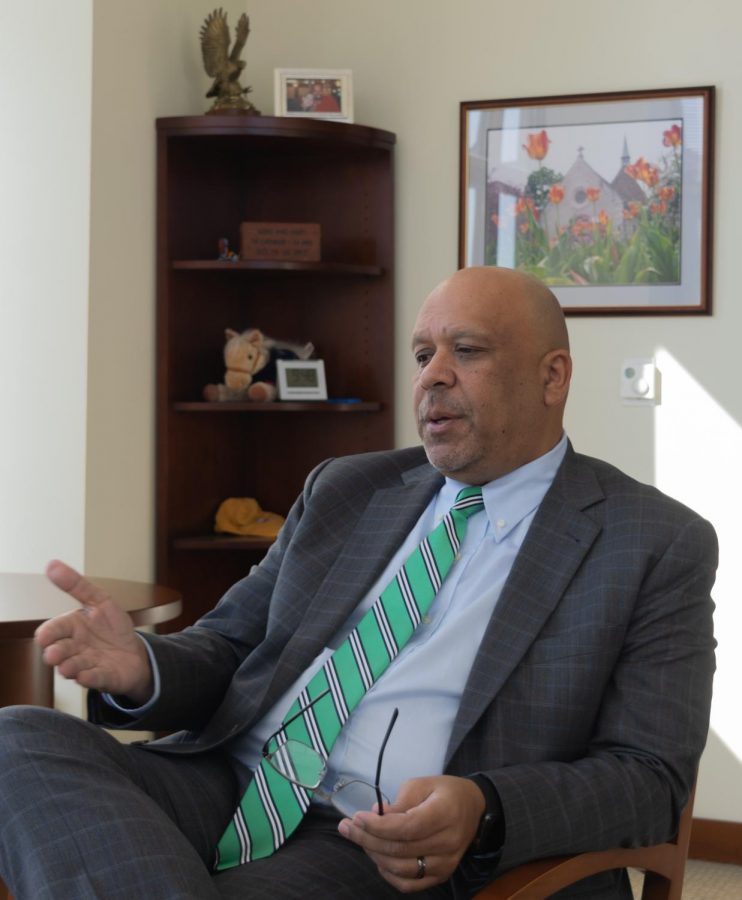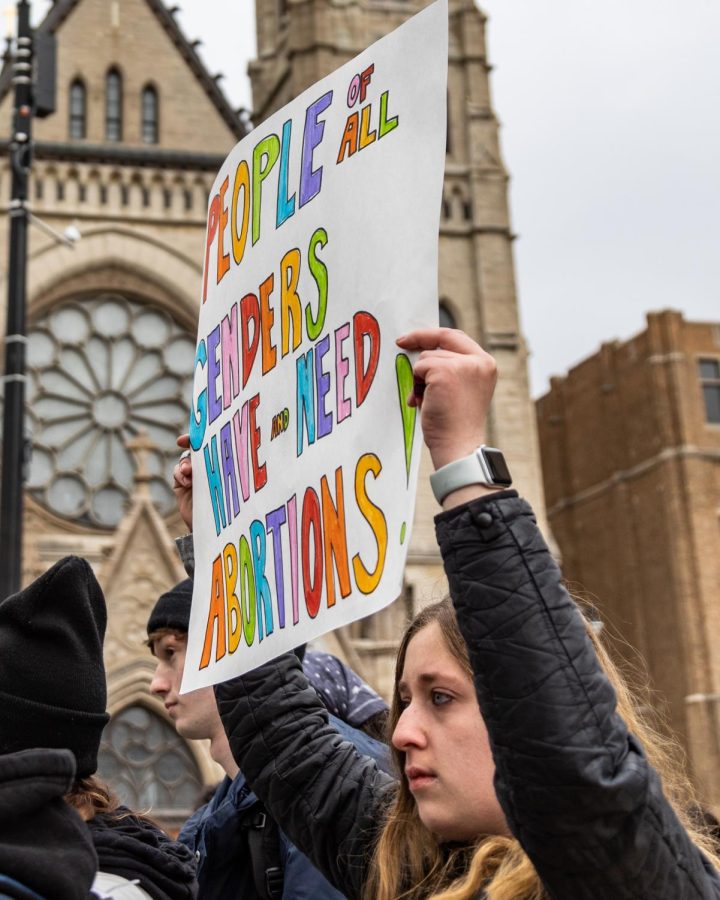Good journalism begins with a simple task: to inform and serve community members.
Exceptional journalism ends with real impact. It shapes institutions, systems and procedures. It elicits action and responses from organizations and individuals alike.
These outcomes require careful reporting. They necessitate newsroom discussions about ethical and moral decision-making. Reporters must explore many different perspectives and considerations before publishing stories, often weighing various journalistic responsibilities against one another.
The complexity of these decisions proves the need for transparency in journalism. News organizations should be forthcoming with their guiding principles and reporting practices.
It is for this reason that the Marquette Wire is sharing a comprehensive ethics code accessible to readers, viewers and listeners. This code serves as a compass for the reporters, editors, photographers, producers, designers and other students who work for the Marquette Tribune, Marquette Journal, Marquette University Television and Marquette Radio.
The student executive director wrote the ethics code, which was developed over the course of three semesters. Its provisions are based on in-depth research of other ethics codes and extensive input from a variety of student media leaders. The code was recently ratified by the Board of Student Media, which consists of local professionals, student representatives and Marquette employees who advise student media.
“It is only by representing ourselves in an honorable way that we can earn the trust of our readers, listeners and viewers,” the code’s preamble reads.
The recent Daily Northwestern editorial serves as a learning opportunity for all in the media industry. The editorial, which garnered backlash from readers and fellow journalists, discussed the student newspaper’s coverage of a campus event featuring former Attorney General Jeff Sessions. Its statements, such as apologizing for using a directory to contact sources, showcase the need for journalists to stick to standardized practices when faced with tough criticism.
As journalists, it is essential for us to prove our credibility through our reporting. We set professional standards for every individual in our organization. This helps us ensure that community members feel confident turning to our coverage to illuminate their own experiences, opinions and insights, or to learn something new.
Our reporters regularly show up to meetings, offices and buildings to gain access to interview subjects. They repeatedly email and call sources to get responses. They consciously work to include all relevant voices in stories. When handling sensitive stories and sources, they seek advice from editors and alter their approaches accordingly.
Our editors meticulously fact-check stories to uphold the tenets of accuracy and fairness. They make sure to explain complex terms clearly. They put the most important information at the beginning of stories. They are dedicated to fixing grammar and style errors.
The hard work of diligent Marquette Wire staff members manifests in important ways. Earlier this semester, our reporters pointed out confusing language and hidden updates in the university’s demonstration policy, prompting students and faculty members to demand a revision process.
The Marquette Wire uncovered the university’s internal considerations to downsize the College of Education, which prompted faculty outcry and student demands for openness from the administration.
Last academic year, the Marquette Wire published a three-part series shedding light on the university’s complicity in student physical discipline. After sifting through a medical examiner’s report, court records, transcripts and documents from the University Archives, we chronicled the experiences of Walter Spence, a Marquette student who died by suicide in 1978.
The Marquette Wire hosted a town hall forum in Weasler Auditorium last month that brought together a variety of people to discuss mental health, homelessness and Marquette’s campus environment. The event, called Finding Home, launched with the Marquette Journal, and Marquette University Television produced a live stream broadcast of it.
The Marquette Wire brings stories to life with reporting through print, video, audio and photography. Our staff members are committed to multimedia work that meets the consumption needs of all audience members.
There is more work to be done. There are times when we make mistakes. Our hope is that the Marquette Wire ethics code minimizes potential errors and provides direction for our staff members, many of whom are in the early stages of aspiring careers in journalism. We will continue to value feedback from all members of the community, and we will consistently correct any errors in our reporting promptly and thoughtfully.
Our staff members work for you. We run to crime scenes, travel to sporting events, showcase inspirational students and organizations, question authority and investigate wrongdoing for no other reasons than genuine care for the community and its right to learn the truth.
That is our promise.
If you have a question, comment, criticism or story idea, please reach out to Marquette Wire Executive Director Sydney Czyzon at sydney.czyzon@marquette.edu or 414-288-1739.
To receive weekly news updates from the Marquette Wire, click here.










